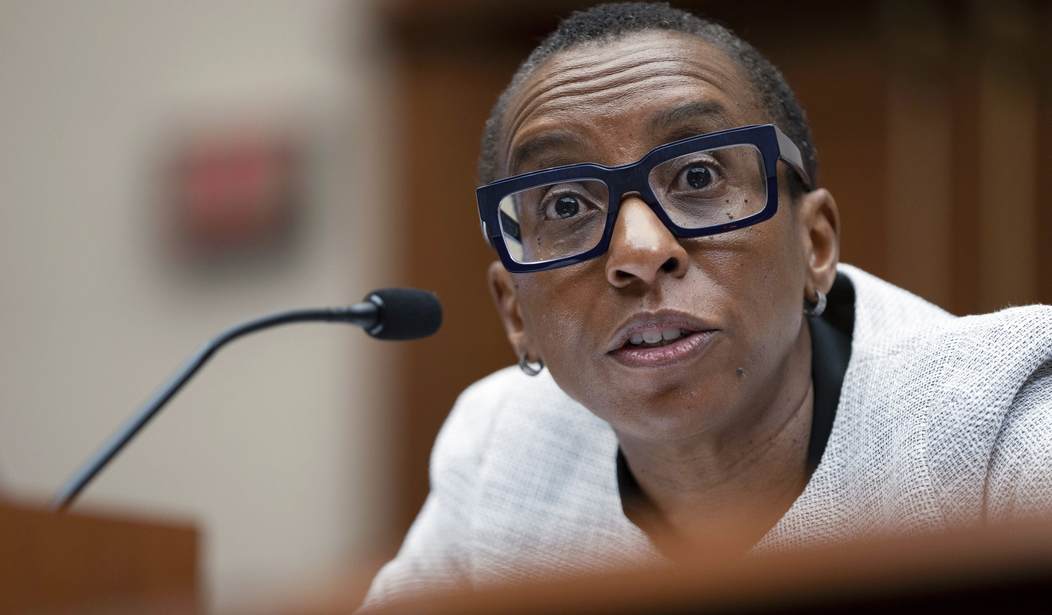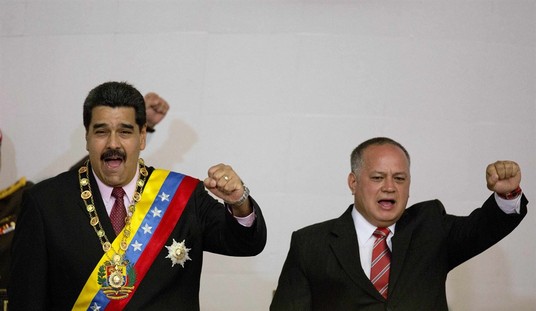Harvard President Claudine Gay recently came under fire for her brain-dead response before Congress to the question of whether “calling for the genocide of Jews violates Harvard’s code of conduct.”
"It depends on the context," said Gay. Perhaps a follow-up question would have been: "What context would calling for the genocide of Jews violate Harvard's code of conduct?" It wouldn't have mattered. Gay would have given an equally equivocal response so as not to offend the antisemites at Harvard.
Immediately after Gay's testimony, the Harvard University board issued a ringing endorsement of Gay. Harvard doesn't concern itself with people who disagree with favored employees.
Not long after Gay's comments on antisemitism were endorsed, the prestigious university was forced to deal with charges that President Gay cribbed entire passages for her academic papers from other scholars, including her doctoral dissertation. The charges were detailed in the Washington Free Beacon, which consulted more than two dozen scholars in their investigation.
The evidence is damning.
In four papers published between 1993 and 2017, including her doctoral dissertation, Gay, a political scientist, paraphrased or quoted nearly 20 authors—including two of her colleagues in Harvard University’s department of government—without proper attribution, according to a Washington Free Beacon analysis. Other examples of possible plagiarism, all from Gay’s dissertation, were publicized Sunday by the Manhattan Institute’s Christopher Rufo and Karlstack’s Chris Brunet.
The Free Beacon worked with nearly a dozen scholars to analyze 29 potential cases of plagiarism. Most of them said that Gay had violated a core principle of academic integrity as well as Harvard’s own anti-plagiarism policies, which state that "it's not enough to change a few words here and there."
Rather, scholars are expected to cite the sources of their work, including when paraphrasing, and to use quotation marks when quoting directly from others. But in at least 10 instances, Gay lifted full sentences—even entire paragraphs—with just a word or two tweaked.
One scholar, political scientist Carol Swain, in an interview criticized Gay’s research more broadly and said of the allegations: “There seems to be a pattern because it’s not just two cases from my work. … At best, it was sloppiness, but it would be considered plagiarism if you lift sections of other people’s work and you pass it off as your own.”
Related: Coalition Breakdown: Anti-Israel Delaware State Rep Heckles Harris at Veep’s Holiday Party
But most of academia yawned and backed President Gay completely.
Chronicle of Higher Education:
Gary King, a political scientist at Harvard who was Gay’s dissertation adviser, was adamant that Gay had not plagiarized him, calling the allegation “absurd” in a phone call with The Chronicle. According to Rufo and Brunet, though Gay “cites King’s book,” she “does not explicitly acknowledge” that an appendix in her dissertation “is entirely grounded in King’s concepts, instead passing it off as her own original work. Throughout the appendix, Gay takes entire phrases and sentences directly from King’s book, without any citations or quotation marks.”
Even when Gay committed plagiarism, the liberal academics gave her a pass.
In her dissertation, Gay did allegedly lift two paragraphs with little modification from a 1996 conference paper by Bradley Palmquist, then a Harvard scholar, and D. Stephen Voss, then a graduate student, and she did not cite the scholars anywhere in the text, according to the Free Beacon. But Voss, now an associate professor of political science at the University of Kentucky, told The Chronicle that while what Gay did is “technically plagiarism,” it’s “pretty far toward the minor side,” in part because the borrowing was, in his view, limited in scope, and Gay was not trying to pass off any significant ideas of his as her own.
If it had been a conservative president of a university (admittedly, a fantasy) what would have been the response of the national media to the information published by the Washington Free Beacon?
Becket Adams, writing at NRO, asks why we didn't read about this first in the New York Times or the Washington Post -- or even the Boston Globe. Why the incuriosity about a serious breach of ethics at one of the major institutions of higher learning in America?
Why is it that the New York Times’ only input on the matter has been a December 12 report, “Harvard Clears Its President of ‘Research Misconduct’ After Plagiarism Charges,” that all but absolves Gay? Why is it that the Boston Globe has published only a single article, “Harvard board says review of President Gay’s writings finds no violations of school standards on research misconduct, but instances of ‘inadequate citation,’” which similarly positions Gay as innocent? Why is it that the Washington Post found the story to be so undeserving of serious coverage that it mentions it only as an aside in the 25th paragraph of a longer report about Gay surviving calls for her resignation?
The reason is that Gay is the president of Harvard and a black woman. The chances of Ms. Gay being fired for anything, much less plagiarism, are slim and none.
This is America in 2023, and it's not likely to change anytime soon.










Join the conversation as a VIP Member